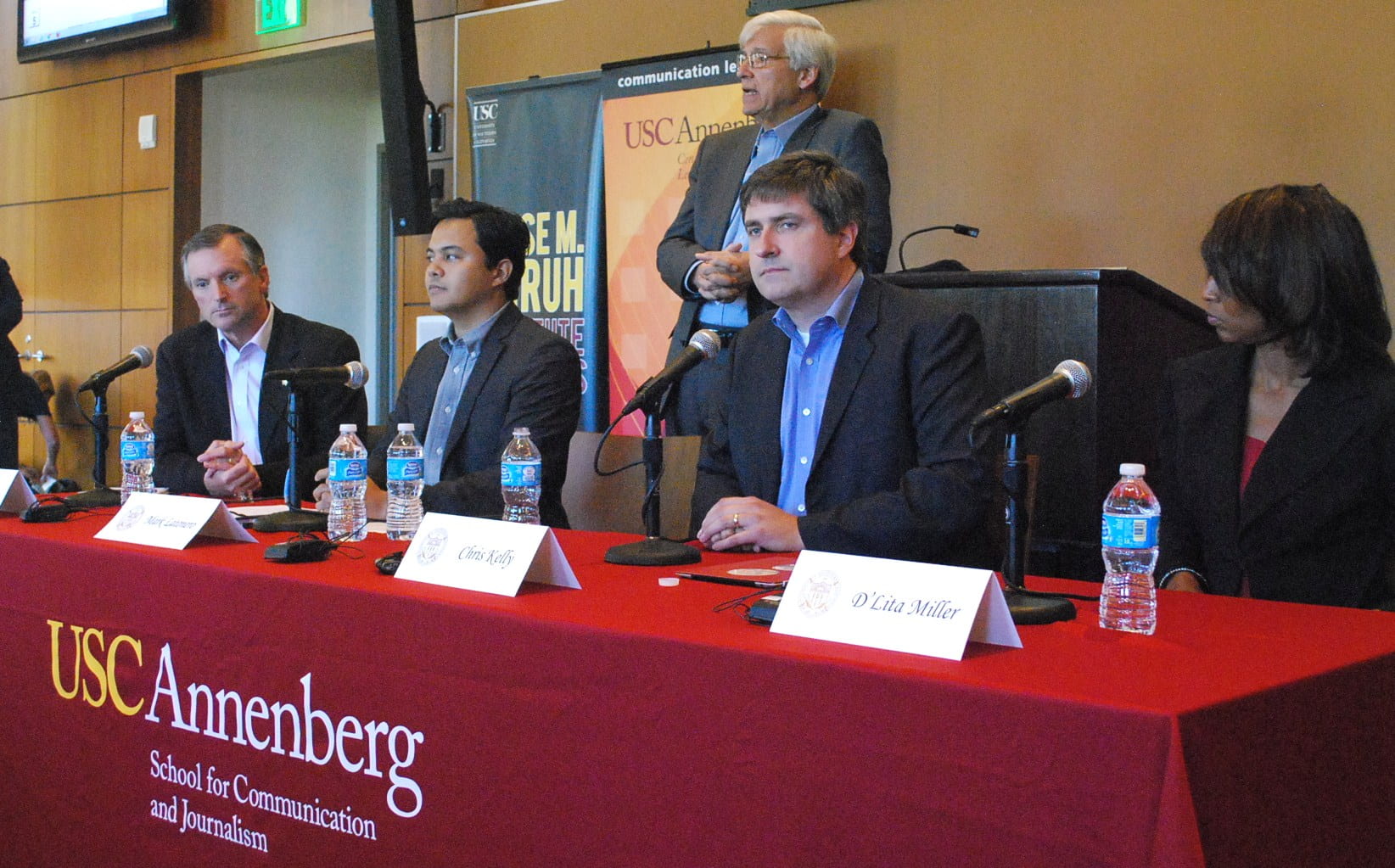
How can a ballot initiative that aims to discourage human trafficking stir up such spirited debate?
Attendees at CCLP’s Road to the White House panel discussion on Wednesday, October 24, 2012, discovered that there are divergent opinions of Proposition 35, a California ballot initiative intended to strengthen human trafficking laws.
Featured panelists included Chris Kelly, founder of the Safer California Foundation and former Chief Privacy Officer at Facebook, D’Lita Miller, a trafficking survivor and Family Support and Outreach Coordinator at Saving Innocence, and John Vanek, a retired Lieutenant who managed the San Jose Police Department Human Trafficking Task Force. CCLP Research Director Mark Latonero, an expert on the role of technology and trafficking, moderated the forum.
A primary focus of the conversation was whether a ballot initiative is the appropriate way to go about effecting this type of change.
Kelly, the driving force behind Proposition 35, provided a passionate defense of the initiative and the decision to take the effort directly to California voters. “We are really proud of what we are doing here because it actually will make real change. It is getting politicized because we are actually going to make people do things differently.”
The discussion also questioned whether existing human trafficking laws are sufficient.
As it stands now, most trafficking cases are never prosecuted, Miller lamented, and the few perpetrators who are convicted typically serve minimal jail time. “The average case is the pimps just get slapped on the wrist,” Miller said. “What Prop. 35 represents is we are not taking it anymore. You will not pimp and traffic our children.”
Vanek, who considers human trafficking the most complicated issue facing American law enforcement today, countered that existing state laws are working. “Ask yourself: are you voting for this proposition so you feel good?” Vanek posited, “or because you actually think it is going to make our response better? If you believe it does make the response better, than God bless you – vote for it. But, if you have questions and you wonder why professionals have questions … you might just want to reconsider that.”
Though the panelists may have had different opinions about Proposition 35, they at least shared the same goal. “Even though everyone on this panel has a different approach to addressing the problem of human trafficking – and it is a very real problem – I am convinced everyone is drawing from the same compassion and willingness to do something about this issue,” Latonero said.
As the discussion opened to the floor for questions, panelist received an overwhelming positive response from attendees. Steven, a freshman political science major said, “Honestly, this is the most interesting panel I’ve been to at USC.”
The forum was a precursor to the November release of the center’s second annual
Human Trafficking Online report, which will foster further dialogue about the role that the Internet and mobile devices are playing in facilitating, yet also combating, human trafficking.
View the transcript: RTTWH Prop 35 Transcript.pdf
Road to the White House 2012: Politics, Media & Policy is a weekly series presented in partnership with USC Dornsife’s Unruh Institute of Politics and USC Price’s Bedrosian Center on Governance and the Public Enterprise, designed to help voters make informed decisions in the voting booth.
Road to the White House 2012: California Ballot Proposition 35 on Human Trafficking from Take One Productions, Inc. on Vimeo.